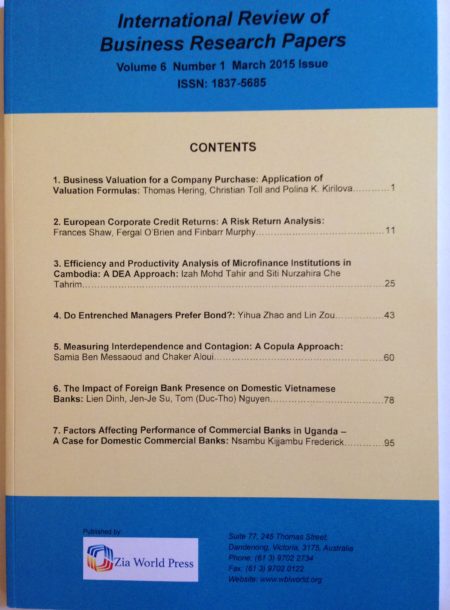International Review of Business Research Papers
Vol. 16. No.2, September 2020, Pages: 66– 86
The Impact of IFRS Adoption on Value Relevance of Accounting Information: The Case of Sri Lanka
Pubudu Kaushalya and Sampath Kehelwalatenna
This study investigates the impact of IFRS adoption on value relevance of accounting information in a developing country, Sri Lanka. The study uses publicly available data in annual financial statements and Colombo Stock Exchange (CSE) reports of all listed companies in the CSE during 2008 – 2018 to estimate panel data regression models. Findings of the study indicate that price value relevance of Sri Lankan firms’ has increased and return value relevance has decreased upon adopting IFRS in 2012. It also reveals that value relevance of book value of equity has increased, value relevance of operating cash flows has not changed, and value relevance of earnings has decreased after the IFRS adoption. This resembles extant research findings on IFRS give more prominence to financial position (balance sheet items) and investors pay more attention on book value of the firm than earnings in their decision making. The study adds empirical evidence on the impact of IFRS adoption on value relevance of accounting information in a developing country contrary to almost all similar past studies provide evidence related to developed and emerging countries. Given the contextual differences in developed, emerging, and developing countries the findings of this study offer a better explanation on the influence of IFRS adoption on value relevance of accounting information in a developing market. The present study controls the impact of company size and incurring losses on value relevance of accounting information of firms as a modification to existing models reported in literature to provide much more robust evidence.

